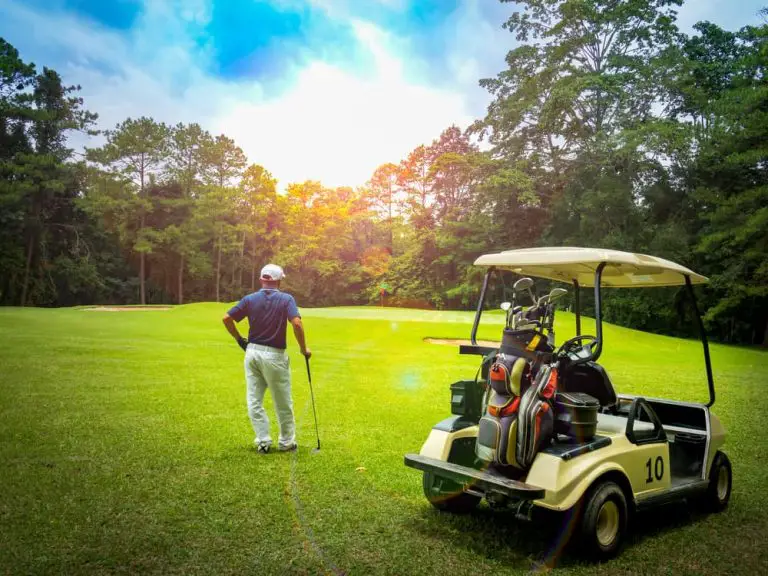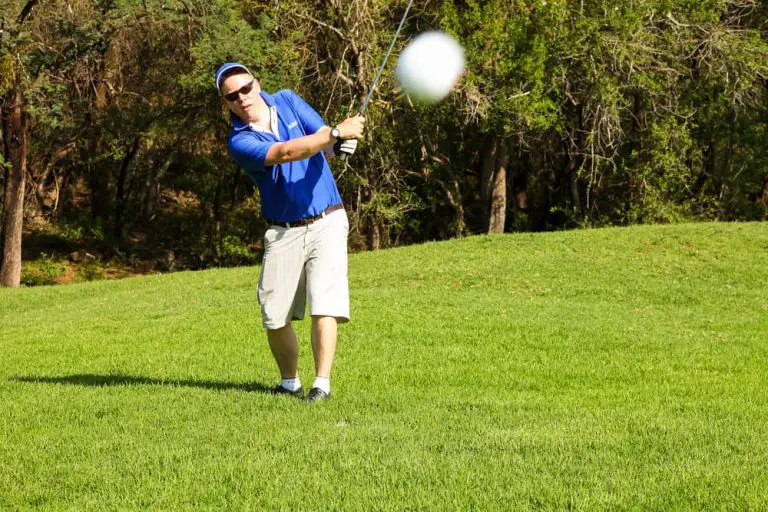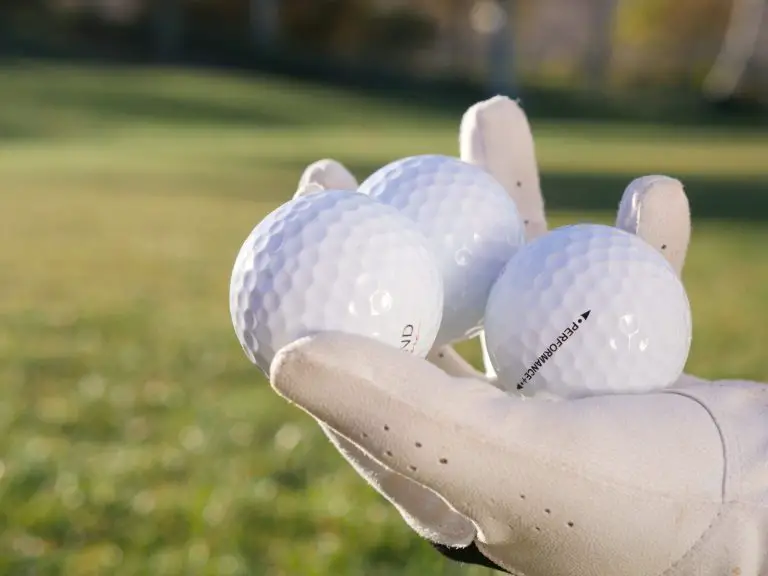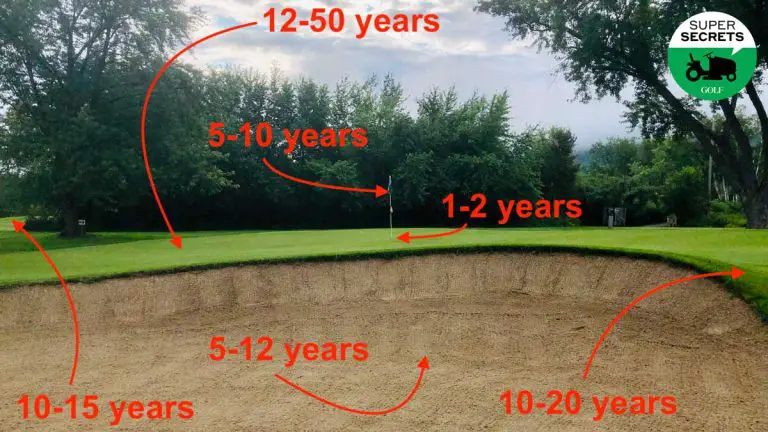How Far Should You Hit A 6 Iron
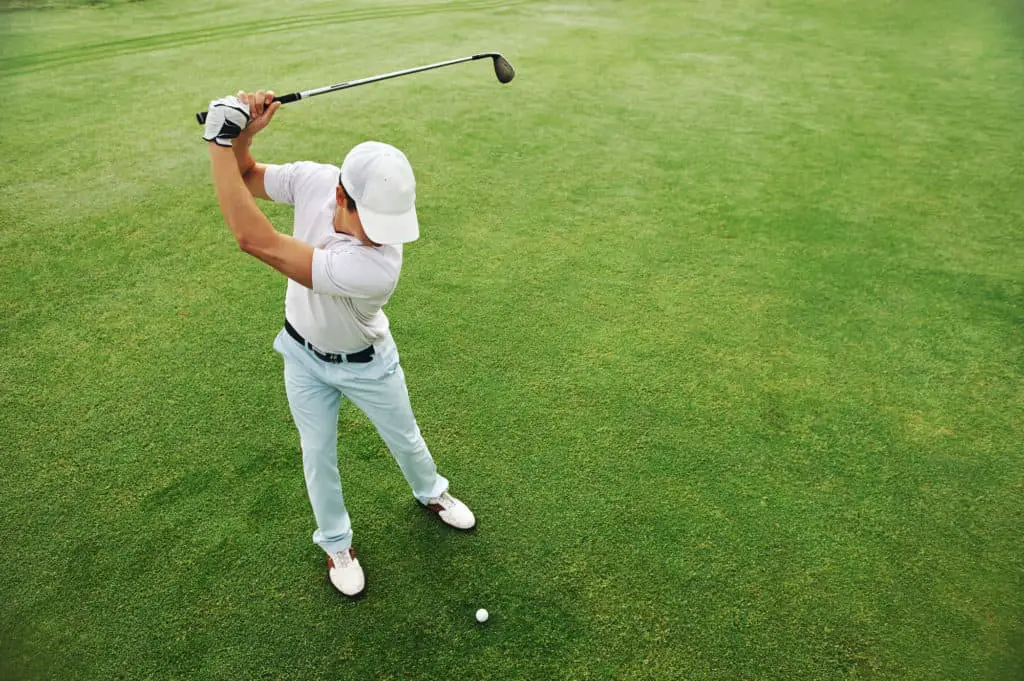
In the game of golf, knowing the distance you can achieve with each club is vital for making strategic decisions on the course. When it comes to the 6 iron, a versatile club often used for mid-range shots, golfers frequently wonder, “How far should you hit a 6 iron?” The answer to this question depends on various factors, including club loft, swing speed, shot technique, and individual skill level.
In this comprehensive guide, we will delve into the intricacies of determining the distance you can expect to hit a 6 iron. We will explore the key factors that influence 6 iron distance, provide average benchmarks, and offer practical tips to help you maximize your performance with this club.
Understanding the factors that impact 6 iron distance is crucial for precise club selection and shot execution. We will examine the role of club loft and design, swing speed and power, as well as shot technique and skill in determining how far you can hit a 6 iron. By grasping these fundamentals, you will gain valuable insights into your own capabilities and learn strategies to optimize your distance.
Furthermore, we will provide average distance ranges for both professional golfers and amateur players. It is important to remember that individual variations exist based on factors such as skill level, swing speed, and shot consistency.
Determining your personal 6 iron distance is an ongoing process that involves self-assessment, practice, and a deep understanding of your swing characteristics. Through this article, you will acquire the knowledge and tools necessary to establish a reliable 6 iron distance that suits your game.
So, let’s dive into the fascinating world of 6 iron distances and equip ourselves with the insights to make confident decisions and execute successful shots on the golf course.

Factors Affecting Distance with a 6 Iron
To determine how far you can hit a 6 iron, it’s important to consider the following factors:
Club Loft and Design
The loft of a club, including the 6 iron, plays a significant role in determining distance. The 6 iron typically has a loft ranging from 28 to 32 degrees, which affects the trajectory and carry distance of the ball. Understanding the loft of your 6 iron and how it compares to other clubs in your bag will provide insights into its potential distance.
Club design also influences distance. Modern 6 irons are designed with advanced technologies such as cavity backs and perimeter weighting, which can enhance forgiveness and ball speed. Considering the design features of your 6 iron can give you an idea of its potential performance.
Swing Speed and Power
Your swing speed directly impacts the distance you can achieve with a 6 iron. Generally, higher swing speeds generate greater ball speed and carry distance. If you have a faster swing speed, you can expect to hit a 6 iron farther than someone with a slower swing speed.
Power is another important factor. Generating power through proper sequencing and timing of your swing can lead to increased distance. Efficient transfer of energy from your body to the clubhead will contribute to longer shots with your 6 iron.
Shot Technique and Skill
The quality of your shot technique and your skill level also influence the distance you can hit a 6 iron. Consistently striking the ball in the sweet spot of the clubface and making clean contact with the turf can optimize distance. Additionally, factors such as angle of attack, ball compression, and swing path can impact the effectiveness of your shots with a 6 iron.
Average Distance for Hitting a 6 Iron
Understanding the average distance for hitting a 6 iron can provide a benchmark for evaluating your own performance. It’s important to note that these averages can vary among golfers based on factors such as skill level, swing speed, and shot technique.
PGA Tour Averages
Looking at the distances achieved by professional golfers on the PGA Tour can give you an idea of the potential range. On average, PGA Tour players hit a 6 iron between 170 and 190 yards. However, it’s essential to remember that professionals possess exceptional skills and swing speeds that may differ significantly from the average golfer.
Amateur Golfer Averages
For recreational golfers, the average distance with a 6 iron is generally shorter than that of professional players. Amateurs can expect to hit a 6 iron between 140 and 160 yards. It’s important to recognize that individual variations exist, and factors such as skill level, swing speed, and shot consistency contribute to these variances.
Factors Influencing Personal Distance with a 6 Iron
While understanding average distances is informative, it’s equally important to consider the factors that influence your personal distance with a 6 iron. These factors include:
Individual Swing Speed and Power
Your unique swing speed and power play a significant role in determining your distance with a 6 iron. The faster your swing speed and the more power you generate, the farther you can expect to hit the ball. Improving your swing speed and power through proper technique, fitness, and strength training can help you maximize your distance with a 6 iron.
Shot Quality and Consistency
The quality and consistency of your ball striking are crucial in achieving optimal distance with a 6 iron. Making clean contact with the ball and consistently striking it in the center of the clubface, also known as the sweet spot, can maximize the transfer of energy and result in longer shots. Working on your shot technique, including proper alignment, balance, and ball position, can greatly improve your shot quality and distance control.
Environmental Factors
Environmental conditions can also affect the distance you can hit a 6 iron. Factors such as wind, temperature, and altitude can impact the flight and carry of the ball. Playing against a strong headwind can reduce the distance, while having a tailwind can provide a slight boost. Additionally, playing at higher altitudes where the air is thinner can result in longer distances, while colder temperatures may slightly decrease distances.
Determining Your Personal 6 Iron Distance
Establishing your personal 6 iron distance requires a combination of self-assessment, practice, and data gathering. Here are some steps you can take to determine your own 6 iron distance:
Assessing Swing Characteristics
Evaluate your swing characteristics to gain insights into your potential distance with a 6 iron. Pay attention to factors such as swing speed, angle of attack, ball contact, and shot trajectory. Analyzing these aspects can help you understand your tendencies and identify areas for improvement.
Utilizing Technology and Launch Monitors
Technology, such as launch monitors and golf simulators, can provide valuable data on your 6 iron shots. These tools measure metrics such as clubhead speed, ball speed, launch angle, and carry distance. By utilizing technology, you can gather accurate data and gain a better understanding of your personal 6 iron distance.
Practical Tips for Maximizing 6 Iron Distance
While understanding your personal 6 iron distance is important, there are practical tips you can follow to maximize your distance with this club:
Proper Equipment Selection
Ensure that you have the right equipment for your game. This includes selecting a 6 iron with the appropriate shaft flex, clubhead design, and grip size. Properly fitted clubs can optimize your distance potential and enhance your overall performance.
Strengthening Swing Mechanics
Focus on improving your swing mechanics to maximize your 6 iron distance. This includes developing proper sequencing, maintaining a consistent swing tempo, and optimizing your angle of attack. Working with a golf instructor or coach can provide valuable guidance and help you refine your technique.
Fitness and Flexibility
Physical fitness and flexibility are key factors in generating power and maximizing distance with a 6 iron. Incorporate exercises and stretches that target the muscles used in the golf swing, such as the core, legs, and upper body. Building strength and flexibility can enhance your ability to generate clubhead speed and hit longer shots with your 6 iron.
Conclusion
Determining how far you should hit a 6 iron depends on various factors, including club loft, swing speed, shot technique, and skill level. While average distances provide a reference point, it’s important to recognize that individual variations exist. By considering your own swing characteristics, utilizing technology for data analysis, and following practical tips, you can optimize your performance with a 6 iron.
Remember to select the right equipment, work on your swing mechanics, and prioritize physical fitness and flexibility. With practice and a better understanding of your personal 6 iron distance, you’ll have the confidence to make more informed decisions on the course and approach each shot with greater precision.
Golf is a game of constant improvement, and finding your personal 6 iron distance is a journey that requires dedication and practice. Take the time to assess your swing characteristics, gather data, and implement the practical tips provided. Embrace the challenge of refining your technique and honing your skills to maximize your 6 iron performance.
Additionally, consider the importance of course management and shot strategy. Understanding your 6 iron distance allows you to make better decisions when faced with various yardages and obstacles on the course. By knowing your capabilities with a 6 iron, you can confidently select the appropriate club for different situations and approach each shot with a well-defined plan.
Remember, consistency is key. As you continue to work on your swing mechanics, shot quality, and overall game, you’ll notice improvements in your 6 iron distance. Be patient, stay focused, and enjoy the process of becoming a more accomplished golfer.

